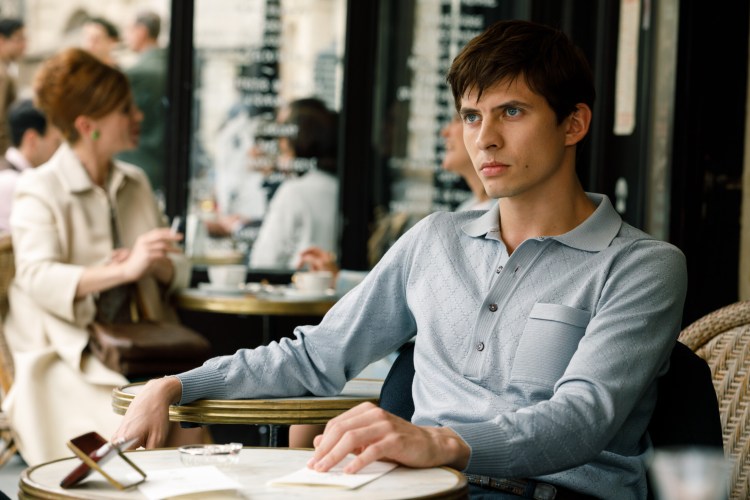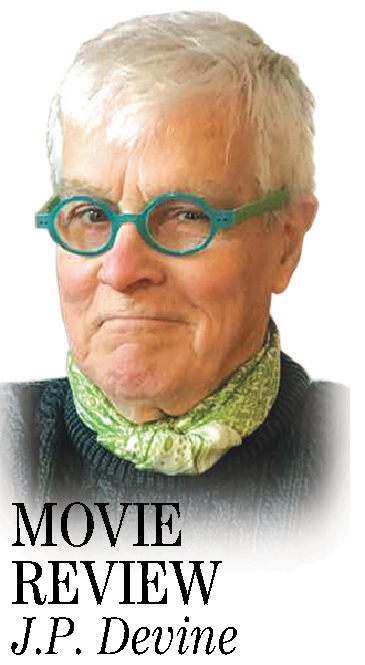“White Crow” is a simple phrase. Spoken in Russian it defines a standout, an outlier; such a figure was Soviet-born ballet dancer Rudolf Nureyev, played here by young Ukrainian born Oleg Ivenko.
Pushed from his mother’s womb in the dead of a Russian winter in a trans-Siberian box car (as we watch) Rudolf Nureyev, the Joe DiMaggio of dance, with the tiger-like energy of a Siberian Mick Jagger, burned through life to become what many considered to be the reincarnation of the greatest of the great, Vaslav Nijinsky.
The social literature at the time reveals that “Rudy” was the outlier at the Leningrad Ballet School in the ’50s, a rebellious perfectionist who stood out at the corp de ballet. Stumbling at first, he soon pulled himself up and stood erect among his classmates like a fierce matador in tights.
From there he went straight to leading roles with the famed Kirov Ballet. A legend was born.
In 2011, writer Julie Kavanagh penned a biography “Rudolf Nureyev: The Life.” And with that in hand, actor-director Ralph Fiennes created “The White Crow,” a deliciously carved piece of ballet history but assembled like a modern spy thriller, with ballet masters and Russian intelligent agents floating around the young genius like summer bugs.
Do not come to “White Crow” expecting a blizzard of tutus and a tepid documentary on ballet. It’s much more than that. Fiennes builds his film for the average viewer like the pro he is.
Fiennes, one of England’s master actors with a dazzling resume, found his Nureyev in Ivenko, spent months honing his acting skills and shaping him into a reasonable avatar of one of the world’s great dancers.
Fiennes directs with intense power and plays an important part (master instructor Pushkin) in this beautiful and intense film. What Fiennes and Ivenko accomplish here is no easy trick, like Nureyev.
Still young and untested, Ivenko lacks the sweet smile and charm that made a dancing deity like Nureyev a box office hit in Europe and on his tours of America, but when he’s called upon to ooze out Nureyev’s famous arrogance, he chills even the darkest KGB heart. Bravo.
There are few but wonderful moments of great ballet here, and Ivenko, who at first spoke no English and had never acted, nails them all. See for yourself.
Fiennes, always a pro, speaks perfect Russian and moves with grace, as the calm, almost shy man that Pushkin was. As director and featured player, he succeeds.
An amazing Chulpan Khamatova, as Pushkin’s lovely wife Xenia, takes the young Nureyev under both of her wings and in deeply sensual scenes slides him gently across the soft sheets from his classmate lover Teja Kremke (Louis Hofmann.)
There is Rudolf’s off-and-on tryst with Parisian socialite Clara Saint, played here by a stunning Adele Exarchopoulos. (The youngest artist ever to receive the coveted Palme d’Or award in Cannes.)
Clara emerges as his rescuer in the last nail-biting scenes, when his Russian handlers inform him that he must return to Moscow to “perform” for Nikita Khrushchev. He knows it’s a trap, and that his career is over.
Here in this last 20 or 30 minutes in Paris’ Le Bourget Airport, as his KGB escorts surround him, and Clara appears with the French authorities, the tension is toe curling.
Mike Eley’s camera follows each dance movement and seduction with grace and precision.
Most importantly, great credit to Johan Kobborg who served as the film’s dance consultant and choreographer. All in all, a refreshing change from the current “Marvel Comics” tsunami.
J.P. Devine, of Waterville, is a former stage and screen actor.
Copy the Story LinkSend questions/comments to the editors.




Success. Please wait for the page to reload. If the page does not reload within 5 seconds, please refresh the page.
Enter your email and password to access comments.
Hi, to comment on stories you must . This profile is in addition to your subscription and website login.
Already have a commenting profile? .
Invalid username/password.
Please check your email to confirm and complete your registration.
Only subscribers are eligible to post comments. Please subscribe or login first for digital access. Here’s why.
Use the form below to reset your password. When you've submitted your account email, we will send an email with a reset code.